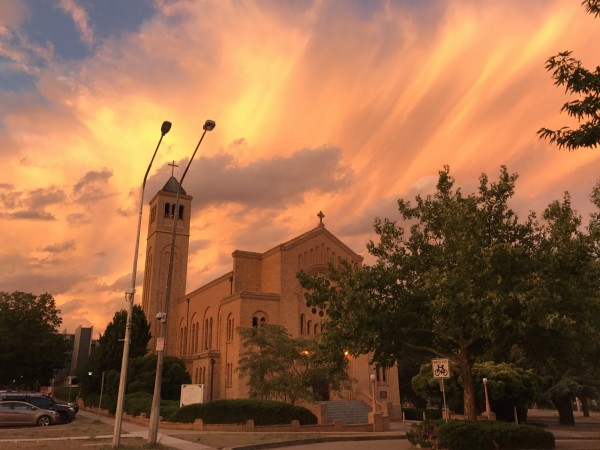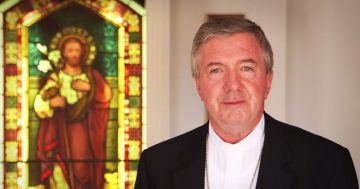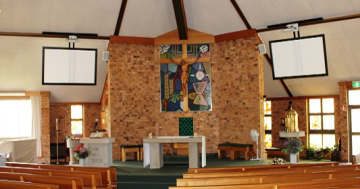
St Christopher’s Cathedral, Manuka, is the centre of the Canberra Goulburn archdiocese. Photo: File.
A Canberra group of reform-minded Catholics, including political analyst Professor John Warhurst and veteran journalist Paul Bongiorno, will collaborate to bring the historic Plenary Council proceedings to a much wider audience.
The Plenary Council begins next week, bringing together Australia’s 46 bishops, 99 invited priests, 25 religious sisters and around 110 lay people for a gathering that’s intended to provide guidance for the church’s future. A second session is scheduled for October 2022 and bishops alone will have a deliberative vote, forwarding their conclusions to the Vatican for approval.
The Catholic Church remains Australia’s largest non-government employer, of around 230,000 people working in schools, aged care, social work and the health care system. It runs voluntary organisations like the Saint Vincent de Paul Society with 41,150 volunteers and has significant stakeholding in social service provision across the country.
But the disastrous consequence of the Royal Commission into institutional sexual abuse deeply damaged the church. While 222,000 people participated in a consultation process that yielded more than 17,000 responses for the Plenary gathering, the Council has been criticised for taking a “bland and cautious” approach centred on existing hierarchies.
In an effort to open up the Council’s proceedings, Concerned Catholics Canberra Goulburn (CCCG) will present a nightly Plenary Tracker Zoom bulletin on the proceedings of the Plenary Council, in association with the Australasian Coalition for Catholic Church Reform.
The Zoom bulletin will have a potential reach of several thousand people and will run each night at 7:30 pm, starting on 3 October, until 10 October.
The Plenary Tracker will air the latest developments at the Plenary Council and provide commentary and critique by Australia’s leading experts on Catholic issues. Each episode will include the latest news about the Plenary followed by discussions with leading commentators.
Each of the eight episodes will focus on themes ranging from expectations for the Plenary meeting, the church’s response to the Royal Commission, the inclusion of women and national issues such as the Uluru Statement from the Heart and Australia’s treatment of asylum seekers.
“We have advocated long and hard for church leaders to share power with Catholics outside the hierarchy, the faithful in the pews, to enable them to have a greater say over the rules and running of the Church,” Professor Warhurst said.
“The church has suffered a haemorrhage in congregations in recent years and more so since the Royal Commission’s shattering findings. Most bishops have not done nearly enough to show they are really genuine about reform. The church has lost its way and in many respects can hardly be said to be following the path of grassroots reform that Pope Francis has urged.
“We hope that the Plenary Tracker will provide to those with an interest in the future of Catholicism a searching and thought-provoking coverage of this fundamentally important gathering.”
Concerned Catholics Canberra Goulburn was established just over four years ago in the wake of the Royal Commission. It aims to reinvigorate the church’s advocacy of the gospel through significant changes in the church, including in areas of gender equality, lay leadership, transparency and accountability.
Since 2017 the group has held several public meetings to provide a forum for discussion about change in the church and has collaborated on the Australasian Coalition for Catholic Church Reform in national forums drawing thousands of registrants.















